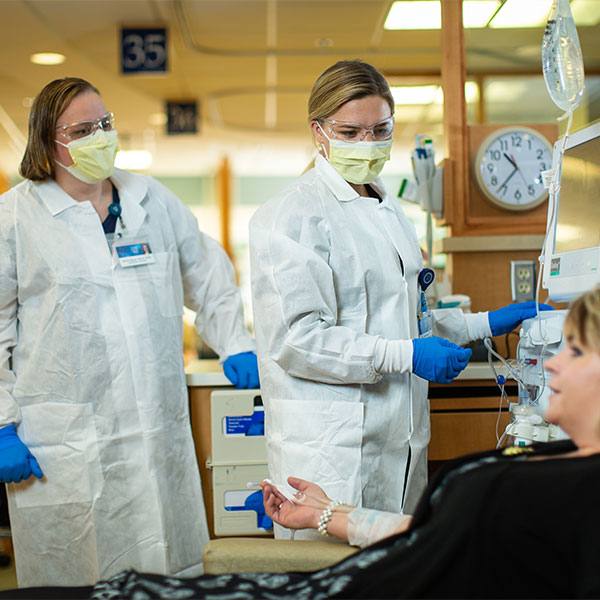-
Biotherapeutics
Stem cell therapy for kidney damage repair
Mesenchymal stem cells derived from a person's fat cells may help repair kidney damage caused by narrowing blood vessels, Mayo Clinic research has discovered. The research by Stephen Textor, M.D., and his team is published in Kidney International.
Mayo Clinic Center for Regenerative Medicine and the National Institutes of Health supported this first-in-human study to determine if stem cells could restore function to a kidney injured by blocked blood vessels. The Center for Regenerative Medicine prioritizes new therapies that can be adopted by the practice.

"The surprising discovery was the degree of measurable increase in blood flow despite the main vessel occlusion. The changes in blood flow, oxygenation and function suggest that small vessels are being formed or reopened in the kidney after stem cell therapy," says Dr. Textor.
Atherosclerotic renovascular disease is a hardening and narrowing of arteries that deliver blood to the kidneys. Low blood flow damages tissue, causing chronic kidney disease and eventually end-stage renal failure. Patients then require kidney dialysis. There are limited therapeutic options for reversing kidney damage from vascular disease.
The research
In a phase 1 clinical trial, Dr. Textor's team studied 39 patients with atherosclerotic renovascular disease on two occasions over three months. Researchers infused 21 patients each with mesenchymal stem cells derived from the patient's own fat. Delivered directly into the renal artery of the damaged kidney, the mesenchymal stem cell therapy was given in three different dose amounts. Researchers measured kidney function, oxygen levels, blood flow and markers of injury before the stem cell therapy and three months after infusion. Those data were compared to 18 patients with atherosclerotic renovascular disease treated only with standard therapies.
"The results of this study showed for the first time that cell-based therapy can boost blood flow, increase oxygenation and lower inflammatory injury in this form of kidney injury," says Dr. Textor. "These findings demonstrate the safety of cell-based therapy in the human kidney and identify a dose-related recovery of some kidney function in this disease."
Additional studies will be needed to verify the findings and address whether stem cell therapy could repair common forms of kidney damage, such as damage from diabetes.
###







